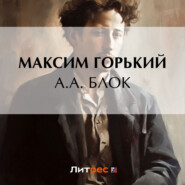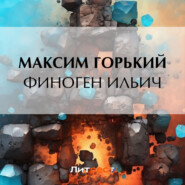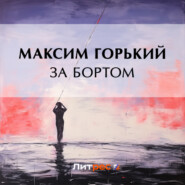По всем вопросам обращайтесь на: info@litportal.ru
(©) 2003-2025.
✖
Mother
Настройки чтения
Размер шрифта
Высота строк
Поля
"They certainly would," Ignaty assented, nodding his head. "No, I'll go to the factory. It's better there."
"You say Pavel's going to be tried?" asked Rybin.
"Yes. They've decided on a trial."
"Well, what'll he get? Have you heard?"
"Hard labor, or exile to Siberia for life," answered the mother softly. The three young men simultaneously turned their look on her, and Rybin, lowering his head, asked slowly:
"And when he got this affair up, did he know what was in store for him?"
"I don't know. I suppose he did."
"He did," said Sofya aloud.
All were silent, motionless, as if congealed by one cold thought.
"So," continued Rybin slowly and gravely. "I, too, think he knew. A serious man looks before he leaps. There, boys, you see, the man knew that he might be struck with a bayonet, or exiled to hard labor; but he went. He felt it was necessary for him to go, and he went. If his mother had lain across his path, he would have stepped over her body and gone his way. Wouldn't he have stepped over you, Nilovna?"
"He would," said the mother shuddering and looking around. She heaved a heavy sigh. Sofya silently stroked her hand.
"There's a man for you!" said Rybin in a subdued voice, his dark eyes roving about the company. They all became silent again. The thin rays of the sun trembled like golden ribbons in the thick, odorous atmosphere. Somewhere a crow cawed with bold assurance. The mother looked around, troubled by her recollections of the first of May, and grieving for her son and Andrey.
Broken barrels lay about in confusion in the small, crowded glade. Uprooted stumps stretched out their dead, scraggy roots, and chips of wood littered the ground. Dense oaks and birches encircled the clearing, and drooped over it slightly on all sides as if desiring to sweep away and destroy this offensive rubbish and dirt.
Suddenly Yakob moved forward from the tree, stepped to one side, stopped, and shaking his head observed dryly:
"So, when we're in the army with Yefim, it's on such men as Pavel Mikhaylovich that they'll set us."
"Against whom did you think they'd make you go?" retorted Rybin glumly. "They choke us with our own hands. That's where the jugglery comes in."
"I'll join the army all the same," announced Yefim obstinately.
"Who's trying to dissuade you?" exclaimed Ignaty. "Go!" He looked Yefim straight in the face, and said with a smile: "If you're going to shoot at me, aim at the head. Don't just wound me; kill me at once."
"I hear what you're saying," Yefim replied sharply.
"Listen, boys," said Rybin, letting his glance stray about the little assembly with a deliberate, grave gesture of his raised hand. "Here's a woman," pointing to the mother, "whose son is surely done for now."
"Why are you saying this?" the mother asked in a low, sorrowful voice.
"It's necessary," he answered sullenly. "It's necessary that your hair shouldn't turn gray in vain, that your heart shouldn't ache for nothing. Behold, boys! She's lost her son, but what of it? Has it killed her? Nilovna, did you bring books?"
The mother looked at him, and after a pause said:
"I did."
"That's it," said Rybin, striking the table with the palm of his hand. "I knew it at once when I saw you. Why need you have come here, if not for that?" He again measured the young men with his eyes, and continued, solemnly knitting his eyebrows: "Do you see? They thrust the son out of the ranks, and the mother drops into his place."
He suddenly struck the table with both hands, and straightening himself said with an air that seemed to augur ill:
"Those – " – here he flung out a terrible oath – "those people don't know what their blind hands are sowing. They will know when our power is complete and we begin to mow down their cursed grass. They'll know it then!"
The mother was frightened. She looked at him, and saw that Mikhaïl's face had changed greatly. He had grown thinner; his beard was roughened, and his cheek bones seemed to have sharpened. The bluish whites of his eyes were threaded with thin red fibers, as if he had gone without sleep for a long time. His nose, less fleshy than formerly, had acquired a rapacious crook. His open, tar-saturated collar, attached to a shirt that had once been red, exposed his dry collar bones and the thick black hair on his breast. About his whole figure there was something more tragic than before. Red sparks seemed to fly from his inflamed eyes and light the lean, dark face with the fire of unconquerable, melancholy rage. Sofya paled and was silent, her gaze riveted on the peasant. Ignaty shook his head and screwed up his eyes, and Yakob, standing at the wall again, angrily tore splinters from the boards with his blackened fingers. Yefim, behind the mother, slowly paced up and down along the length of the table.
"The other day," continued Rybin, "a government official called me up, and, says he, 'You blackguard, what did you say to the priest?' 'Why am I a blackguard?' I say. 'I earn my bread in the sweat of my brow, and I don't do anything bad to people.' That's what I said. He bawled out at me, and hit me in the face. For three days and three nights I sat in the lockup." Rybin grew infuriated. "That's the way you speak to the people, is it?" he cried. "Don't expect pardon, you devils. My wrong will be avenged, if not by me, then by another, if not on you, then on your children. Remember! The greed in your breasts has harrowed the people with iron claws. You have sowed malice; don't expect mercy!"
The wrath in Rybin seethed and bubbled; his voice shook with sounds that frightened the mother.
"And what had I said to the priest?" he continued in a lighter tone. "After the village assembly he sits with the peasants in the street, and tells them something. 'The people are a flock,' says he, 'and they always need a shepherd.' And I joke. 'If,' I say, 'they make the fox the chief in the forest, there'll be lots of feathers but no birds.' He looks at me sidewise and speaks about how the people ought to be patient and pray more to God to give them the power to be patient. And I say that the people pray, but evidently God has no time, because he doesn't listen to them. The priest begins to cavil with me as to what prayers I pray. I tell him I use one prayer, like all the people, 'O Lord, teach the masters to carry bricks, eat stones, and spit wood.' He wouldn't even let me finish my sentence. – Are you a lady?" Rybin asked Sofya, suddenly breaking off his story.
"Why do you think I'm a lady?" she asked quickly, startled by the unexpectedness of his question.
"Why?" laughed Rybin. "That's the star under which you were born. That's why. You think a chintz kerchief can conceal the blot of the nobleman from the eyes of the people? We'll recognize a priest even if he's wrapped in sackcloth. Here, for instance, you put your elbows on a wet table, and you started and frowned. Besides, your back is too straight for a working woman."
Fearing he would insult Sofya with his heavy voice and his raillery, the mother said quickly and sternly:
"She's my friend, Mikhaïl Ivanovich. She's a good woman. Working in this movement has turned her hair gray. You're not very – "
Rybin fetched a deep breath.
"Why, was what I said insulting?"
Sofya looked at him dryly and queried:
"You wanted to say something to me?"
"I? Not long ago a new man came here, a cousin of Yakob. He's sick with consumption; but he's learned a thing or two. Shall we call him?"
"Call him! Why not?" answered Sofya.
Rybin looked at her, screwing up his eyes.
"Yefim," he said in a lowered voice, "you go over to him, and tell him to come here in the evening."
Yefim went into the shack to get his cap; then silently, without looking at anybody, he walked off at a leisurely pace and disappeared in the woods. Rybin nodded his head in the direction he was going, saying dully:
"He's suffering torments. He's stubborn. He has to go into the army, he and Yakob, here. Yakob simply says, 'I can't.' And that fellow can't either; but he wants to; he has an object in view. He thinks he can stir the soldiers. My opinion is, you can't break through a wall with your forehead. Bayonets in their hands, off they go – where? They don't see – they're going against themselves. Yes, he's suffering. And Ignaty worries him uselessly."
"No, not at all!" said Ignaty. He knit his eyebrows, and kept his eyes turned away from Rybin. "They'll change him, and he'll become just like all the other soldiers."
"No, hardly," Rybin answered meditatively. "But, of course, it's better to run away from the army. Russia is large. Where will you find the fellow? He gets himself a passport, and goes from village to village."
"That's what I'm going to do, too," remarked Yakob, tapping his foot with a chip of wood. "Once you've made up your mind to go against the government, go straight."
The conversation dropped off. The bees and wasps circled busily around humming in the stifling atmosphere. The birds chirped, and somewhere at a distance a song was heard straying through the fields. After a pause Rybin said:
"Well, we've got to get to work. Do you want to rest? There are boards inside the shanty. Pick up some dry leaves for them, Yakob. And you, mother, give us the books. Where are they?"
"You say Pavel's going to be tried?" asked Rybin.
"Yes. They've decided on a trial."
"Well, what'll he get? Have you heard?"
"Hard labor, or exile to Siberia for life," answered the mother softly. The three young men simultaneously turned their look on her, and Rybin, lowering his head, asked slowly:
"And when he got this affair up, did he know what was in store for him?"
"I don't know. I suppose he did."
"He did," said Sofya aloud.
All were silent, motionless, as if congealed by one cold thought.
"So," continued Rybin slowly and gravely. "I, too, think he knew. A serious man looks before he leaps. There, boys, you see, the man knew that he might be struck with a bayonet, or exiled to hard labor; but he went. He felt it was necessary for him to go, and he went. If his mother had lain across his path, he would have stepped over her body and gone his way. Wouldn't he have stepped over you, Nilovna?"
"He would," said the mother shuddering and looking around. She heaved a heavy sigh. Sofya silently stroked her hand.
"There's a man for you!" said Rybin in a subdued voice, his dark eyes roving about the company. They all became silent again. The thin rays of the sun trembled like golden ribbons in the thick, odorous atmosphere. Somewhere a crow cawed with bold assurance. The mother looked around, troubled by her recollections of the first of May, and grieving for her son and Andrey.
Broken barrels lay about in confusion in the small, crowded glade. Uprooted stumps stretched out their dead, scraggy roots, and chips of wood littered the ground. Dense oaks and birches encircled the clearing, and drooped over it slightly on all sides as if desiring to sweep away and destroy this offensive rubbish and dirt.
Suddenly Yakob moved forward from the tree, stepped to one side, stopped, and shaking his head observed dryly:
"So, when we're in the army with Yefim, it's on such men as Pavel Mikhaylovich that they'll set us."
"Against whom did you think they'd make you go?" retorted Rybin glumly. "They choke us with our own hands. That's where the jugglery comes in."
"I'll join the army all the same," announced Yefim obstinately.
"Who's trying to dissuade you?" exclaimed Ignaty. "Go!" He looked Yefim straight in the face, and said with a smile: "If you're going to shoot at me, aim at the head. Don't just wound me; kill me at once."
"I hear what you're saying," Yefim replied sharply.
"Listen, boys," said Rybin, letting his glance stray about the little assembly with a deliberate, grave gesture of his raised hand. "Here's a woman," pointing to the mother, "whose son is surely done for now."
"Why are you saying this?" the mother asked in a low, sorrowful voice.
"It's necessary," he answered sullenly. "It's necessary that your hair shouldn't turn gray in vain, that your heart shouldn't ache for nothing. Behold, boys! She's lost her son, but what of it? Has it killed her? Nilovna, did you bring books?"
The mother looked at him, and after a pause said:
"I did."
"That's it," said Rybin, striking the table with the palm of his hand. "I knew it at once when I saw you. Why need you have come here, if not for that?" He again measured the young men with his eyes, and continued, solemnly knitting his eyebrows: "Do you see? They thrust the son out of the ranks, and the mother drops into his place."
He suddenly struck the table with both hands, and straightening himself said with an air that seemed to augur ill:
"Those – " – here he flung out a terrible oath – "those people don't know what their blind hands are sowing. They will know when our power is complete and we begin to mow down their cursed grass. They'll know it then!"
The mother was frightened. She looked at him, and saw that Mikhaïl's face had changed greatly. He had grown thinner; his beard was roughened, and his cheek bones seemed to have sharpened. The bluish whites of his eyes were threaded with thin red fibers, as if he had gone without sleep for a long time. His nose, less fleshy than formerly, had acquired a rapacious crook. His open, tar-saturated collar, attached to a shirt that had once been red, exposed his dry collar bones and the thick black hair on his breast. About his whole figure there was something more tragic than before. Red sparks seemed to fly from his inflamed eyes and light the lean, dark face with the fire of unconquerable, melancholy rage. Sofya paled and was silent, her gaze riveted on the peasant. Ignaty shook his head and screwed up his eyes, and Yakob, standing at the wall again, angrily tore splinters from the boards with his blackened fingers. Yefim, behind the mother, slowly paced up and down along the length of the table.
"The other day," continued Rybin, "a government official called me up, and, says he, 'You blackguard, what did you say to the priest?' 'Why am I a blackguard?' I say. 'I earn my bread in the sweat of my brow, and I don't do anything bad to people.' That's what I said. He bawled out at me, and hit me in the face. For three days and three nights I sat in the lockup." Rybin grew infuriated. "That's the way you speak to the people, is it?" he cried. "Don't expect pardon, you devils. My wrong will be avenged, if not by me, then by another, if not on you, then on your children. Remember! The greed in your breasts has harrowed the people with iron claws. You have sowed malice; don't expect mercy!"
The wrath in Rybin seethed and bubbled; his voice shook with sounds that frightened the mother.
"And what had I said to the priest?" he continued in a lighter tone. "After the village assembly he sits with the peasants in the street, and tells them something. 'The people are a flock,' says he, 'and they always need a shepherd.' And I joke. 'If,' I say, 'they make the fox the chief in the forest, there'll be lots of feathers but no birds.' He looks at me sidewise and speaks about how the people ought to be patient and pray more to God to give them the power to be patient. And I say that the people pray, but evidently God has no time, because he doesn't listen to them. The priest begins to cavil with me as to what prayers I pray. I tell him I use one prayer, like all the people, 'O Lord, teach the masters to carry bricks, eat stones, and spit wood.' He wouldn't even let me finish my sentence. – Are you a lady?" Rybin asked Sofya, suddenly breaking off his story.
"Why do you think I'm a lady?" she asked quickly, startled by the unexpectedness of his question.
"Why?" laughed Rybin. "That's the star under which you were born. That's why. You think a chintz kerchief can conceal the blot of the nobleman from the eyes of the people? We'll recognize a priest even if he's wrapped in sackcloth. Here, for instance, you put your elbows on a wet table, and you started and frowned. Besides, your back is too straight for a working woman."
Fearing he would insult Sofya with his heavy voice and his raillery, the mother said quickly and sternly:
"She's my friend, Mikhaïl Ivanovich. She's a good woman. Working in this movement has turned her hair gray. You're not very – "
Rybin fetched a deep breath.
"Why, was what I said insulting?"
Sofya looked at him dryly and queried:
"You wanted to say something to me?"
"I? Not long ago a new man came here, a cousin of Yakob. He's sick with consumption; but he's learned a thing or two. Shall we call him?"
"Call him! Why not?" answered Sofya.
Rybin looked at her, screwing up his eyes.
"Yefim," he said in a lowered voice, "you go over to him, and tell him to come here in the evening."
Yefim went into the shack to get his cap; then silently, without looking at anybody, he walked off at a leisurely pace and disappeared in the woods. Rybin nodded his head in the direction he was going, saying dully:
"He's suffering torments. He's stubborn. He has to go into the army, he and Yakob, here. Yakob simply says, 'I can't.' And that fellow can't either; but he wants to; he has an object in view. He thinks he can stir the soldiers. My opinion is, you can't break through a wall with your forehead. Bayonets in their hands, off they go – where? They don't see – they're going against themselves. Yes, he's suffering. And Ignaty worries him uselessly."
"No, not at all!" said Ignaty. He knit his eyebrows, and kept his eyes turned away from Rybin. "They'll change him, and he'll become just like all the other soldiers."
"No, hardly," Rybin answered meditatively. "But, of course, it's better to run away from the army. Russia is large. Where will you find the fellow? He gets himself a passport, and goes from village to village."
"That's what I'm going to do, too," remarked Yakob, tapping his foot with a chip of wood. "Once you've made up your mind to go against the government, go straight."
The conversation dropped off. The bees and wasps circled busily around humming in the stifling atmosphere. The birds chirped, and somewhere at a distance a song was heard straying through the fields. After a pause Rybin said:
"Well, we've got to get to work. Do you want to rest? There are boards inside the shanty. Pick up some dry leaves for them, Yakob. And you, mother, give us the books. Where are they?"

















